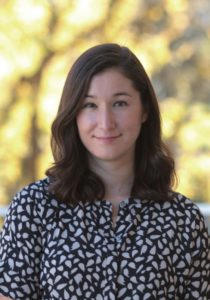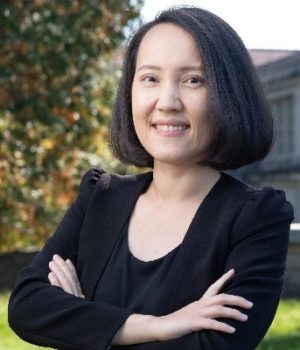A researcher and doctoral candidate in neuroscience and public policy at the University of Wisconsin-Madison was deemed ineligible for a fellowship from the Howard Hughes Medical Institute (HHMI) intended to support students from underrepresented groups — because as a Hmong American, she’s not “underrepresented.”
That’s because HHMI uses federal data to determine what groups are considered “underrepresented,” and that data includes just one category for all people of Asian heritage. According to that data, people of Asian heritage make up just under six percent of the American population, and about 6.5 percent of all graduate students in the sciences and engineering. But that ignores the diversity within the Asian American population, UW Asian American Studies Program Director Dr. Lori Lopez said.

“There definitely is a fundamental problem,” Lopez said. “To just look at a Hmong-American person and say, because they belong to the larger racial category of Asian-American, that means they’re not underrepresented, is really misunderstanding the fact that Hmong-Americans have a specific history of oppression.”
Hmong Americans first arrived in Wisconsin as refugees just 45 years ago, fleeing oppression in Southeast Asia in the aftermath of the Vietnam War, and have continued to face marginalization and other barriers in the United States. For example, while 13 percent of all Americans and 10 percent of all Asian Americans live in poverty, that figure is 17 percent for Hmong Americans, according to Pew Research Center data.
Further, just six percent of Hmong Americans hold a postgraduate degree, compared to 24 percent of all Asian Americans and 13 percent of all Americans.
“Blindsided”
Kao Lee Yang is working on a unique dual degree program to earn a PhD in neuroscience, studying the factors that lead to the breakdown of neurons in the later stages of Alzheimer’s Disease, while also earning a master’s degree in public policy exploring “ethical and respectful engagement of communities that have not been included in Alzheimer’s disease research, such as the Hmong American community, as well as implementing and/or supporting initiatives that can improve diversity and inclusion in my field,” she wrote in an email to Madison365.
Yang grew up in Madison, at first in the Allied Drive neighborhood and later in Kennedy Heights. She was a McNair Research Scholar at UW-Stout in Chippewa Falls before moving on to graduate school at UW-Madison.
“Kao Lee is an outstanding student,” her adviser, Dr. Barbara Bendlin, wrote in an email to Madison365. “She is a rigorous scientist and incredibly engaged and curious. She is also passionate about her research, which includes using brain imaging techniques to better understand Alzheimer’s disease, as well as engaging communities that are underrepresented in Alzheimer’s disease research. I’m very excited about Kao Lee’s future in the field. She is already making an impact in her research activities, is an excellent mentor to others, and shows very strong leadership potential.”
Bendlin and Yang went through an extensive application process for the HHMI fellowship, which involved university officials identifying Yang as a potential candidate, and both Bendlin and Yang submitting multiple statements about Yang’s research and training plan, as well as commitment to diversity and inclusion. The university then formally nominated Yang to HHMI for the fellowship.
“This is a competitive fellowship and being nominated meant that I was seen and valued by my university,” Yang said. “It meant that my university saw me as a competitive student with scientific leadership potential and commitment to advancing diversity in the field. It also meant that my university recognizes that I am from a group that is underrepresented in science. With my university’s support, I thought HHMI would feel the same way and at the very least, allow me to compete for the Gilliam Fellowship.”
But before even considering her nomination, HHMI informed Yang that she was ineligible because Asian Americans are not underrepresented in science and engineering.
“I was blindsided by HHMI’s rejection of my nomination, especially because my institution had already determined that I am underrepresented,” Yang said. “It is a difficult position to be in when one institution recognizes me as a person from an underrepresented group, but another institution does not.”
She said in a Twitter thread last week that she doesn’t feel entitled to the fellowship based solely on her ethnicity, but should have at least gotten the chance to be considered.
A footnote in an HHMI Gilliam Fellowship brochure says, “For the purpose of this initiative, we define excluded groups to be persons who identify as Black or African American, Latinx or Hispanic American, American Indian, Native Hawaiian, Alaska Native, and from groups indigenous to the Pacific Island territories of the United States. Persons with disabilities—defined as those with a physical or mental impairment that substantially limits one or more major life activity—are also significantly underrepresented in U.S. science. International students are not eligible.”
The fellowship can fund up to three years of research at $53,000 per year, including a $36,000 stipend for the student, $3,000 for the adviser, $10,000 for tuition and $4,000 discretionary allowance. It also includes specialized training for the student’s adviser.
Yang and Bendlin both said Hmong people are undoubtedly underrepresented in the sciences.
“Attaining a PhD in neuroscience will likely make Kao Lee one of only a very few Hmong American neuroscientists,” Bendlin said. “Students from marginalized groups can face several barriers that make the road to obtaining a PhD more challenging. Having role models is important, making connections with others in your field is important, being supported and valued by decision-makers is important. Furthermore, making the environment where students train a welcoming place is essential to student success. Fellowships that support students from groups underrepresented in science can go a long way to making sure that talent is retained and cultivated, and provide the support and community needed to advance the next generation of leaders.”
“Model Minority Myth”
Yang and Lopez both said this incident shines a light on two important problems.
First, disaggregating data on Asian Americans — that is, changing the practice of considering all Asian Americans as a single category — could have implications in academia as well as a wide range of public policies.
“The question of disaggregation is so much bigger than who is eligible for a fellowship,” Lopez said. “I think when people get really up in arms about disaggregating data, it’s not because they’re like, ‘she should be eligible for this fellowship.’ It’s because we need to understand the diversity and heterogeneity of Asian-Americans for a million different reasons.”
Second, this incident is an example of the “model minority myth,” Lopez said.
“The model minority myth is the idea that all Asian-Americans are well off, that they’re highly educated and wealthy, and don’t experience any racism and are adjusting to life in the U.S. successfully. And it’s been used as a tool to pit Asian-Americans against black and brown communities and say, ‘why are you still struggling? Asian-Americans are doing fine,’” Lopez said. “And obviously, there’s a lot of problems that come with it. It’s inaccurate, it’s a historical construction that’s based on racism and it takes opportunities away from Asian-Americans, but also makes them feel like they shouldn’t ask for help when they’re struggling. It disappears the experience of all these Southeast Asian refugee communities that are struggling or other communities that are struggling.”
Yang said she’s encountered this many times in her life.
“I have encountered people who assume, based on what they hear about Asian Americans, that I am from a high achieving Asian American family,” she said. “In these situations, I felt I had to make myself more vulnerable, such as disclosing personal details about my family’s history, to demonstrate that my family does not fit their assumptions. It is not a pleasant experience.”
Yang’s story struck a chord on social media. She posted a Twitter thread last week and “didn’t think anyone would see it beyond my 22 followers at the time,” she said. The thread was retweeted 2,000 times and Yang now has nearly 700 followers.










